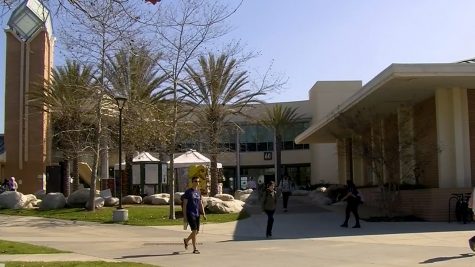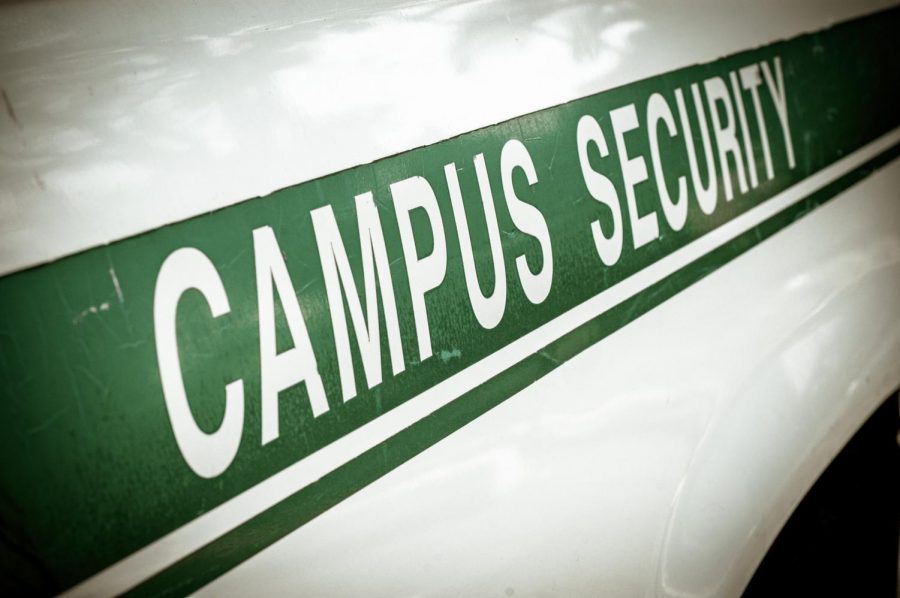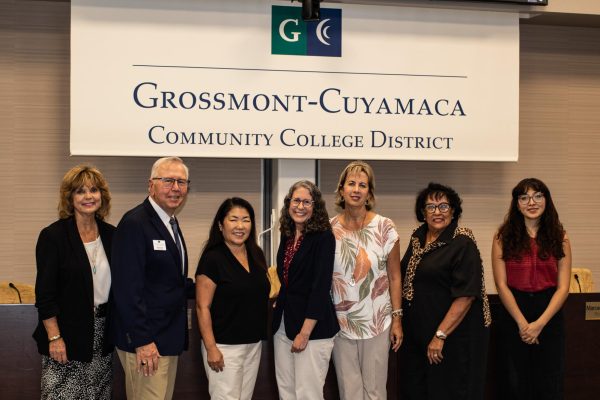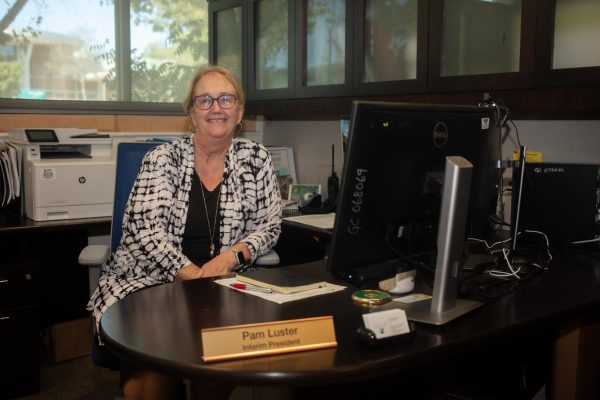Training Goes a Long Way
Prior to the school’s contract with the sheriff’s department, Grossmont had a somewhat controversial Public Safety Department.
December 3, 2020
Security at Grossmont College is covered largely by the San Diego County Sheriff’s Department. But before them there was the somewhat controversial Public Safety Department that patrolled the school.
In 2013, the Community College District Governing Board dissolved the Public Safety Department in favor of starting contract employment of the sheriff’s department.
At the time when the sheriff’s department took over, there was supposed to be a sheriff’s sergeant and seven deputies assigned to work solely at the Grossmont and Cuyamaca college campuses. Though over the years, due to budget concerns, those numbers have been reduced and there is only one deputy per campus along with a sergeant who oversees both.
While it’s not unheard of for a community college to contract for their security services, what prompted the school to make this switch?
The 2013 press release given by the district for this decision stated, “District officials decided to seek the Sheriff’s Department contract after three assessments of the Public Safety Department found that it does not have the capacity to provide the range of law enforcement and emergency preparedness services that the colleges need.”
These assessments “found that the Public Safety Department has inadequate staffing and training; outdated policies and procedures; an improper records and reporting system; lacks procedures and the capacity for properly collecting and managing evidence; and has a backlog of incomplete police reports and unprocessed evidence.”
The districts’ risk management and insurance carrier, a former El Cajon police chief, as well as the Sheriff’s Department, conducted the assessments.
Accounts from faculty seem to verify what the press release stated of the old campus police.
Professor Tina Young, who teaches forensic technology, is the department coordinator for the administration of justice at Grossmont and has been working there for over 15 years. The well-known forensic program at Grossmont has been around for 55 years and is growing.
Young has 20 years of experience in law enforcement and said she understands proper procedure for the administration of justice. She never had a problem with any of the individual public safety officers, but said some of the decisions they made as a department on criminal situations were questionable.
One example was when she was teaching night classes and had a student who would regularly come to class intoxicated. “I had one student who would come to class drunk regularly,drive a car from deep East County on campus, and come to my class clearly intoxicated,” she said.
When she called campus police and explained the situation, saying “they could probably pull him over and get a DUI off this guy,” the campus police told her that they didn’t deal with misdemeanors on campus but were more concerned about felonies. She recalled asking, “Well, if he hits and kills someone then that will be a felony, but don’t you want to prevent that from happening?”
The campus police never intervened, a decision Young found disappointing. In her professional opinion, she said she believes a Sheriff’s deputy would have pulled over the student and would have made a DUI arrest or at least arrest for intoxication.
This wasn’t the only incident Young recalled. There was the time when a student handed her a note in class that read that he wanted to kill himself.
“I had a student; this was when we were getting a lot of veterans coming back from Iraq and Afghanistan and some of them had PTSD from war,” she said. “I had one of those students in my class and he wrote me a suicide note during lab. The note said, ‘If I had a gun, I would shoot myself in the head.’ I showed it to my lab assistant and told her to call 911, call campus police.”
As she waited for campus police to arrive, she asked the student if he had a gun on him, which he replied that he didn’t– but if he did, he would shoot himself in the head. From there, Young continued to talk to the student and try to calm him down.
Campus police escorted the student out of the class and off-campus. “Now I thought that they would take him to county medical health and do an evaluation; he’s clearly suicidal,” Young said, “Instead they drove him off-campus and dropped him off at a bus stop. Now fortunately that student didn’t kill himself that day, but he very well could have.”
It’s a decision she said she didn’t think a sheriff deputy would make. But perhaps the most alarming story she recalled was when a student walked onto campus with a gun trying to impersonate an off-duty officer to get into the Administration of Justice office. Bringing a gun on campus and impersonating an officer are felonies.
This student didn’t threaten anyone and was safely escorted off campus by campus police, but Young recounted that as “campus police escorted him off, they didn’t take his gun away from him, and they didn’t arrest him.”
Young said she believed the problem with the Public Safety Department was training and funding. Other faculty suggested instead of disbanding the department, it be improved.
Professor Jeff Lehman, who teaches chemistry at Grossmont, said he never had any disputes with the old Public Safety Department but was part of the decision process to remove the department. As Lehman learned of the problems hampering the department, he pushed the county to spend more money and get more training to bring the department to professional standards. Ultimately, it was found to be cheaper and more efficient to make the switch to contract to the sheriff’s department.

The 2013 press release said the district’s budget was “about $933,000 a year for its Public Safety Department, and the assessments demonstrated that the expense of bringing services up to needed law enforcement standards was more than the cost of contracting with the Sheriff’s Department.”
As the cost of services from the sheriff’s department continues to rise, the budget for them has stayed the same forcing the school to cut back on the number of deputies on campus. Due to both the coronavirus pandemic and recent civil unrest related to law enforcement, Grossmont has assigned its security task force to reassess the contract with the sheriff’s department.
Loren Holmquist said: “We have people talking about the full scale of what it is to have law enforcement on our campus, whether it’s cost-related or it’s related to social justice.”
It will be interesting to see if Grossmont makes any changes to security in the near future, but for the time being we can still rely on the deputies on campus.














